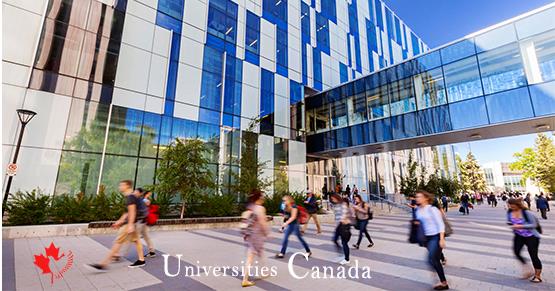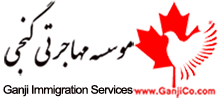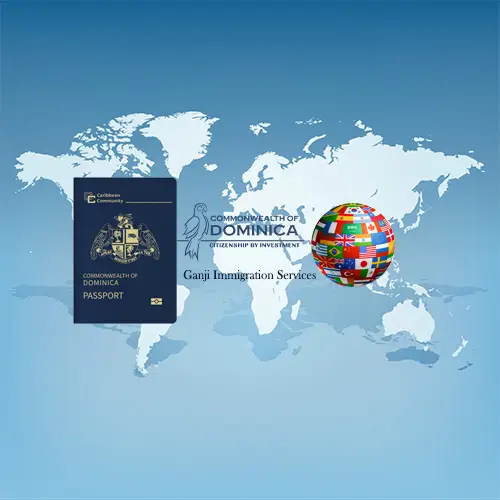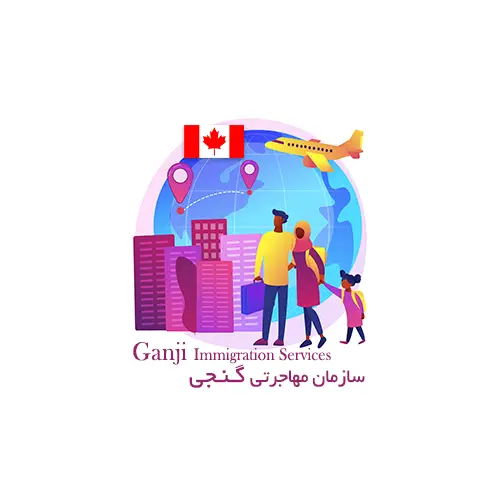
Study in Canada as an international student
Apply to study in Canada as an international student, extend your study permit and find out about working while you study or after you graduate.
Prepare to study in Canada
Where and what to study, how to apply for schools and the list of schools that can receive students in Canada.
Choosing a program and school in Canada
In Canada, each province and territory is in charge of their own education system.
Get more information about schools and the education system:
EduCanada – information for international students about education in Canada, with study program search, costs, and more
Ministries and departments responsible for education – information about the education system in each province and territory
Primary and secondary schools
Schools that teach students up to the grade 12 level are known as primary and secondary schools. Primary usually means grades 1-8 and secondary usually means grades 9-12.
All primary and secondary schools in Canada can enrol international students.
There are special rules for minor children studying in Canada.
Post-secondary schools
Post-secondary schools are:
Apply to study in Canada as an international student, extend your study permit and find out about working while you study or after you graduate.
Prepare to study in Canada
Where and what to study, how to apply for schools and the list of schools that can receive students in Canada.
Choosing a program and school in Canada
In Canada, each province and territory is in charge of their own education system.
Get more information about schools and the education system:
EduCanada – information for international students about education in Canada, with study program search, costs, and more
Ministries and departments responsible for education – information about the education system in each province and territory
Primary and secondary schools
Schools that teach students up to the grade 12 level are known as primary and secondary schools. Primary usually means grades 1-8 and secondary usually means grades 9-12.
All primary and secondary schools in Canada can enrol international students.
There are special rules for minor children studying in Canada.
Post-secondary schools
Post-secondary schools are:

colleges
universities
private career colleges and
vocational and technical schools.
Each post-secondary school has its own set of rules on how to apply, including the level of English or French you need to be accepted.
Get more information on post-secondary schools:
Universities Canada – profiles of Canadian universities, a large study programs database and help to plan your university education
Colleges and Institutes Canada – profiles of colleges and institutes
Canadian Information Centre for International Credentials – information on getting your past education assessed against Canadian standards
National Association of Career Colleges – find out about schools that teach trades and vocations
Language schools
Many schools in Canada teach English or French as a second language. For more information about private language programs, contact Languages Canada.
Studying in French
There are many ways to study in French across Canada.
French-language education in Canada has information on schools and institutions that offer courses in French.
The Association des universités de la francophonie canadienne has information on university programs in French, English, or both.
Designated learning institutions
Provinces and territories approve (or “designate”) schools that can enrol international students. These schools are known as designated learning institutions (DLI).
If you need a study permit, your acceptance letter must be from a DLI. If it isn’t, we will refuse your application.
All primary and secondary schools in Canada are DLIs. You can search a list of the post-secondary schools, such as colleges and universities, and language schools that have been designated.
How to apply to a school, college or university
Once you choose a school, college or university, you must apply to go there. Every school has different rules on how to apply.
Make sure you apply at least:
six months in advance if you want to study at a primary or secondary school,
a year in advance for a post-secondary program at a university, college, etc.
Contact the school where you want to study to learn how to apply. They will give you the list of all the documents you need to send them. Your school will be able to tell you about:
the cost to apply
tuition fees
health insurance
rent and how much it costs to live in Canada
language tests.
Fill out the application forms for the school or schools of your choice. Follow their instructions to submit them.
If the school admits you as a student, they will send you an acceptance letter. You need this letter to apply for a study permit.
Health insurance
The Government of Canada doesn’t pay for the medical costs of foreign students.
Health coverage for foreign students is different depending on where you live. Contact the school you are applying to for more information about health insurance.
Your study permit isn’t a visa
If we approve your study permit application, we’ll also automatically give you either
a visitor visa (temporary resident visa), or
an electronic travel authorization (eTA)
What you get depends on your passport or travel document. This is what allows you to travel to and enter Canada.
If you’re studying in Québec
You must also apply for a Québec Acceptance Certificate (CAQ). You can submit your study permit application before you get your CAQ. In this case, you need to show us proof that you’ve applied for a CAQ.
What is a study permit?
The study permit is a document we issue that allows foreign nationals to study at designated learning institutions (DLIs) in Canada. Most foreign nationals need a study permit to study in Canada. Make sure you have all the documents you need before you apply. You should apply before you travel to Canada.
Your study permit is not a visa. It doesn’t let you enter Canada. You may also need a visitor visa or an electronic travel authorization (eTA). If we approve your study permit, we’ll issue one to you with your study permit.
Get your study permit faster through the Student Direct Stream
If you’re a legal resident in certain countries, you may be able to get your study permit faster by applying online through the Student Direct Stream
Eligibility requirements
You can come to Canada to study if you
are enrolled at a DLI
prove you have enough money to pay for
your tuition fees
living expenses for yourself and any family members who come with you to Canada and
return transportation for yourself and any family members who come with you to Canada
obey the law, have no criminal record and get a police certificate (if required)
are in good health and get a medical exam (if required) and
prove to an officer that you will leave Canada when your study permit expires
Get your study permit faster through the Student Direct Stream
If you’re a legal resident in certain countries, you may be able to get your study permit faster by applying online through the Student Direct Stream.
Your responsibilities
While studying in Canada you must:
make progress towards completing your program
respect any conditions listed on your study permit and
stop studying if you no longer meet the requirements
Depending on your case, there may be conditions on your study permit such as
if you’re allowed to work in Canada
if you’re allowed to travel within Canada
the specific date you must leave Canada
where you can study (a specific DLI listed on your permit) and
You can’t study at a DLI other than the one listed on your permit.
whether you need an immigration medical examination
more info canada.ca
universities
private career colleges and
vocational and technical schools.
Each post-secondary school has its own set of rules on how to apply, including the level of English or French you need to be accepted.
Get more information on post-secondary schools:
Universities Canada – profiles of Canadian universities, a large study programs database and help to plan your university education
Colleges and Institutes Canada – profiles of colleges and institutes
Canadian Information Centre for International Credentials – information on getting your past education assessed against Canadian standards
National Association of Career Colleges – find out about schools that teach trades and vocations
Language schools
Many schools in Canada teach English or French as a second language. For more information about private language programs, contact Languages Canada.
Studying in French
There are many ways to study in French across Canada.
French-language education in Canada has information on schools and institutions that offer courses in French.
The Association des universités de la francophonie canadienne has information on university programs in French, English, or both.
Designated learning institutions
Provinces and territories approve (or “designate”) schools that can enrol international students. These schools are known as designated learning institutions (DLI).
If you need a study permit, your acceptance letter must be from a DLI. If it isn’t, we will refuse your application.
All primary and secondary schools in Canada are DLIs. You can search a list of the post-secondary schools, such as colleges and universities, and language schools that have been designated.
How to apply to a school, college or university
Once you choose a school, college or university, you must apply to go there. Every school has different rules on how to apply.
Make sure you apply at least:
six months in advance if you want to study at a primary or secondary school,
a year in advance for a post-secondary program at a university, college, etc.
Contact the school where you want to study to learn how to apply. They will give you the list of all the documents you need to send them. Your school will be able to tell you about:
the cost to apply
tuition fees
health insurance
rent and how much it costs to live in Canada
language tests.
Fill out the application forms for the school or schools of your choice. Follow their instructions to submit them.
If the school admits you as a student, they will send you an acceptance letter. You need this letter to apply for a study permit.
Health insurance
The Government of Canada doesn’t pay for the medical costs of foreign students.
Health coverage for foreign students is different depending on where you live. Contact the school you are applying to for more information about health insurance.
Your study permit isn’t a visa
If we approve your study permit application, we’ll also automatically give you either
a visitor visa (temporary resident visa), or
an electronic travel authorization (eTA)
What you get depends on your passport or travel document. This is what allows you to travel to and enter Canada.
If you’re studying in Québec
You must also apply for a Québec Acceptance Certificate (CAQ). You can submit your study permit application before you get your CAQ. In this case, you need to show us proof that you’ve applied for a CAQ.
What is a study permit?
The study permit is a document we issue that allows foreign nationals to study at designated learning institutions (DLIs) in Canada. Most foreign nationals need a study permit to study in Canada. Make sure you have all the documents you need before you apply. You should apply before you travel to Canada.
Your study permit is not a visa. It doesn’t let you enter Canada. You may also need a visitor visa or an electronic travel authorization (eTA). If we approve your study permit, we’ll issue one to you with your study permit.
Get your study permit faster through the Student Direct Stream
If you’re a legal resident in certain countries, you may be able to get your study permit faster by applying online through the Student Direct Stream
Eligibility requirements
You can come to Canada to study if you
are enrolled at a DLI
prove you have enough money to pay for
your tuition fees
living expenses for yourself and any family members who come with you to Canada and
return transportation for yourself and any family members who come with you to Canada
obey the law, have no criminal record and get a police certificate (if required)
are in good health and get a medical exam (if required) and
prove to an officer that you will leave Canada when your study permit expires
Get your study permit faster through the Student Direct Stream
If you’re a legal resident in certain countries, you may be able to get your study permit faster by applying online through the Student Direct Stream.
Your responsibilities
While studying in Canada you must:
make progress towards completing your program
respect any conditions listed on your study permit and
stop studying if you no longer meet the requirements
Depending on your case, there may be conditions on your study permit such as
if you’re allowed to work in Canada
if you’re allowed to travel within Canada
the specific date you must leave Canada
where you can study (a specific DLI listed on your permit) and
You can’t study at a DLI other than the one listed on your permit.
whether you need an immigration medical examination
more info canada.ca
تعداد پرسش ها: 0










